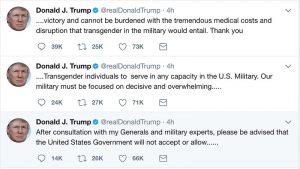Does the U.S.A strive for equality?
The readings for this weeks topic, Our Unique Experiment, covered everything from what the definition of democracy is to John Locke’s social contract. We learned that our class definitions for democracy were more in line with popular sovereignty in that we thought of a democracy as a government by the people for the people. We read about the truths of that definition, but also, the necessary additions of political equality and liberty. The readings continued to discuss about philosophical benefits to our democracy, including the importance of pooled knowledge and the legitimacy of officials. The readings then continued to lay out the foundations by explaining the types of democracy and the conditions of popular sovereignty. Our class session concluded with the explanation of a Locke’s social contract and its effectiveness in our society.
The topic that I would like to delve deeper into is the philosophical benefits portion of the reading. The part of that topic that really stood out to me was the section regarding equality or the, “recognition of the intrinsic worth and equality of human beings”. The question I want to ask and also attempt to answer is if our government is actually working at ensuring equality for our citizens. After further research on this topic, I have concluded that the current government is always attempting equality, but has many missteps along the way.
To begin, I want to establish my standard for evaluation which is simply public opinion and the way government publicly handles issues of equality. I want to first talk about ways in which the government is successful in ensuring equality and worth of all human beings. One federal program in the works in our government was created for the exact purpose of ensuring equal treatment for all races, gender, ethnicities, etc, in the workplace. This program titled, Equal Employment Opportunity Commission (EEOC), was created by President Nixon in the 1960’s and is still present today. Their website explains that as a federal program they are, “responsible for enforcing federal laws that make it illegal to discriminate against a job applicant or an employee because of the person’s race, color, religion, sex, national origin, age, disability or genetic information.” But, that is just one of many ways that our government is effective through their work to ensure equality as was promised by the founders of our country.
A second piece of evidence that I have to support the success of our government in combating inequality is affirmative action. Affirmative action was an executive order passed by JFK in 1961 as a law with an ultimate desire of eliminating discrimination among applicants for higher education or employment. “In a comparison study between the 1999-2000 school year and the 2009-2010 school year, roughly 36% more whites received their master’s degree, while both black and Hispanic rates of graduation more than doubled.” The success for minorities has risen dramatically since the implementation of affirmative action, furthering equality for all americans. All in all, both the EEOC and affirmative action are just two of the many ways that our government is successful in ensuring equality and the intrinsic worth of all human beings.
On the other hand, there are many examples of which our government is not effectively working to combat inequality and where we must take a second look. The first, and most recent, action of government that prohibits the equality of all humans is President Trump’s ban of transgender men and women from participating in the military.

This ban discriminates against humans who don’t have a particular gender identification and is not beneficial towards encouraging equality in America. President Trump argues that transgenders are a distraction and a financial cost to our military; however, regardless of those possible reasons, it doesn’t take away root of discrimination of humans. A second example of failure to ensure equality from our government is another executive order but by our current President Trump. This executive order, as explained by the white house, is an order protecting the nation from foreign terrorists. However, the ban targets six middle eastern countries (Syria, Yemen, Somalia, Iran, Sudan, Libya) who also happen to be all majority muslim countries. This coincidence caused many to question whether this ban was constitutional because of its target of muslim countries and President Trump’s past harsh criticism of those who are muslim. This question of constitutionality of Trump’s ban has reached two separate courts in which they have both decided to block trumps travel ban.
Overall, the government is both effective and ineffective in ensuring equality and human rights among our nation’s citizens. There are limitations on preserving equality in that we have to allow for freedom of speech and value our trust in leaders to decide what is best for our country; however, it can be very well seen through government laws and orders, and through public opinion, that our government ultimately does strive to prevent inequality. The continued block of the travel ban, EEOC, affirmative action, and much more are ways in which our government successfully recognizes and enforces our deep rooted value of equality for all citizens.
Sources:
McGowen, Ernest. Lecture. Sep 4. 2017.
“Overview.” About the EEOC: Overview, eeoc.gov/eeoc/index.cfm.
“11 Facts About Affirmative Action.” DoSomething.org | Volunteer for Social Change, www.dosomething.org/facts/11-facts-about-affirmative-action
“Memorandum for the Secretary of State, the Attorney General, the Secretary of Homeland Security.” The White House, The United States Government, 6 Mar. 2017, www.whitehouse.gov/the-press-office/2017/03/06/memorandum-secretary-state-attorney-general-secretary-homeland-security.
“Colorado Officials Tear into Trump’s Tweets Announcing Ban on Transgender Military Service.” Colorado Politics, 27 July 2017, coloradopolitics.com/colorado-officials-tear-trumps-tweets-announcing-ban-transgender-military-service/.